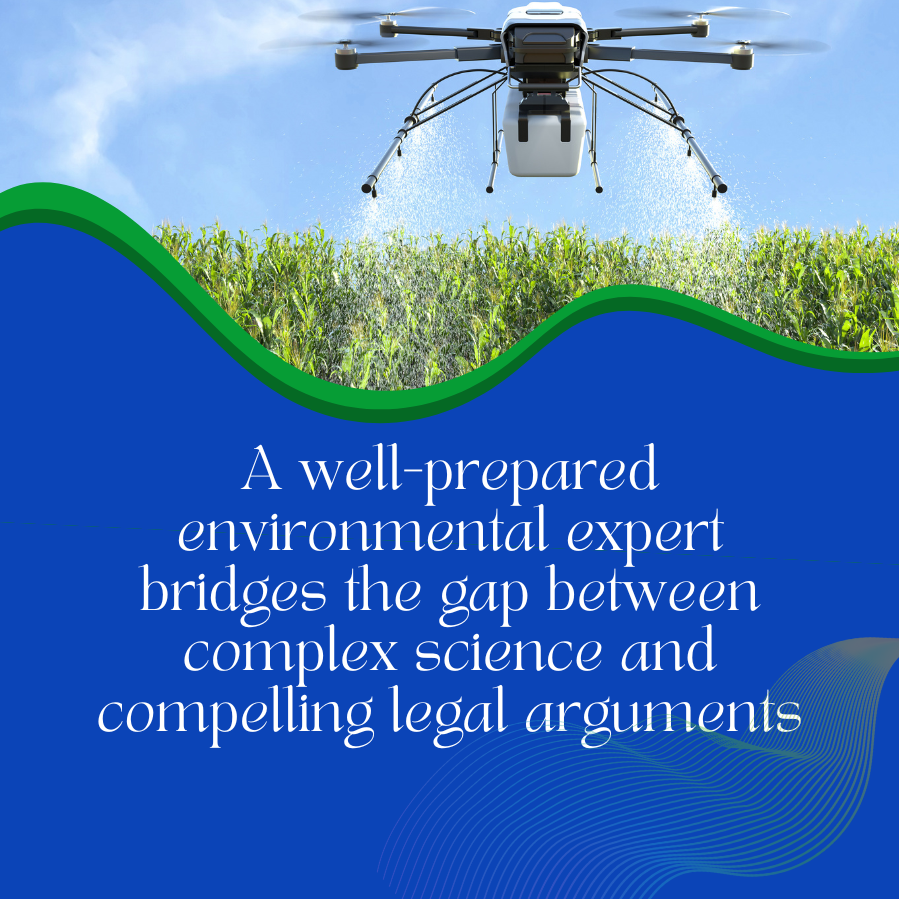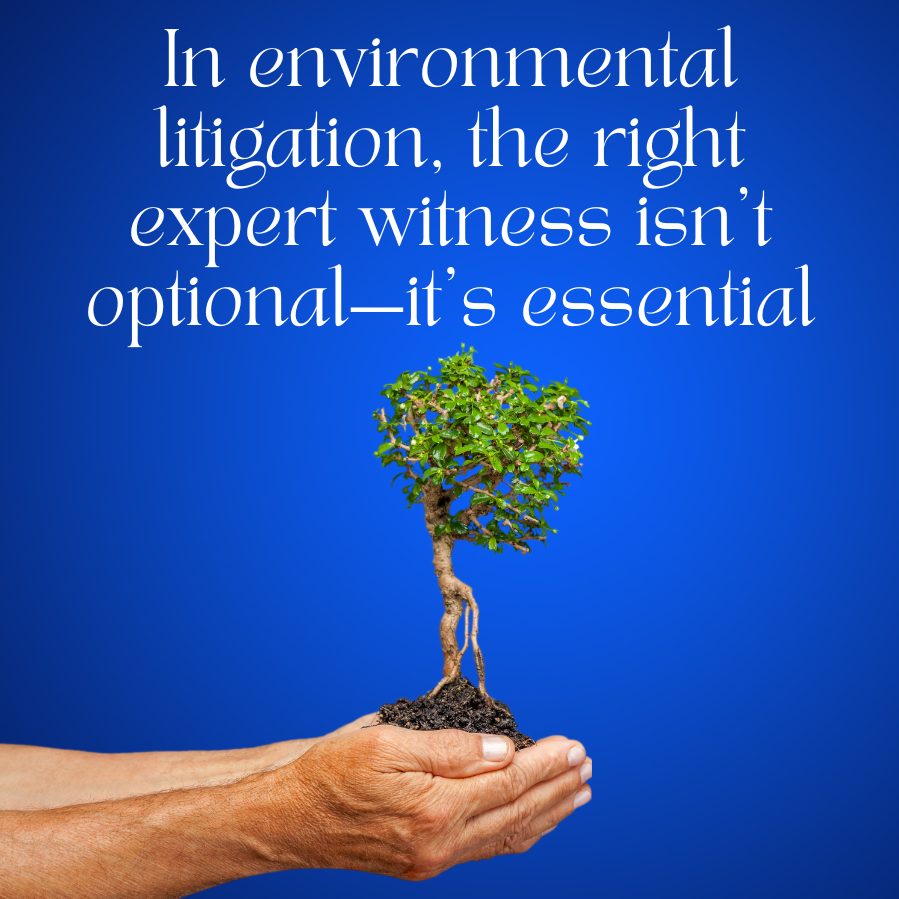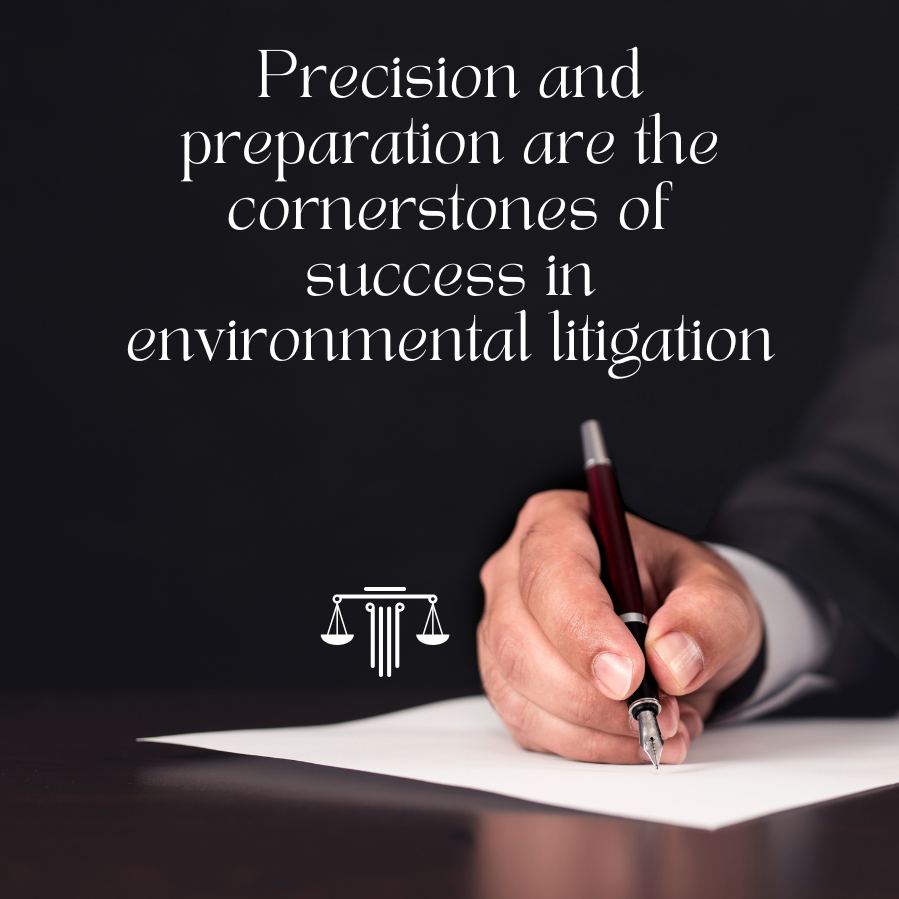The Role of Expert Witnesses in Environmental Litigation Cases
Navigating environmental litigation is no easy task, especially when success hinges on analyzing complex technical data and complying with stringent regulatory standards. For attorneys, the real challenge is finding the right environmental litigation expert who can transform this intricate information into persuasive legal arguments that connect with judges and juries.
Picture preparing for a case where scientific testimony is the linchpin of your argument—only to find the expert witness struggling to convey their findings effectively. This is a scenario no lawyer wants to face, and it underscores the vital importance of selecting the right environmental litigation expert to ensure your case is both credible and persuasive.
This article explores how expert witnesses contribute to the success of environmental litigation, outlines common challenges attorneys face in selecting the right experts, and offers practical strategies to ensure expert testimony bolsters your case.

Why Expert Witnesses Are Essential in Environmental Litigation
Environmental cases are uniquely complex, often involving multifaceted issues like contamination, regulatory breaches, or ecological harm. Expert witnesses play a pivotal role by providing:
Scientific Credibility: They lend authority by interpreting complex data, such as chemical analyses or air quality reports.
Case Context: Experts explain the significance of findings within the framework of environmental law and regulations.
Persuasive Testimony: A well-prepared expert bridges the gap between highly technical evidence and a lay audience, like jurors or judges.
Case Study: The Importance of an Environmental Litigation Expert
In a notable environmental litigation case, a state agency pursued a company for alleged groundwater contamination caused by improper disposal practices. The plaintiff’s attorney relied on a geologist with expertise in hydrology to establish a direct link between the company’s waste site and the contaminated water.
The expert’s testimony was instrumental in proving causation, as it clarified how pollutants traveled through specific soil layers to affect nearby wells.
Contrast this with another case where the opposing side’s expert, a generalist, failed to provide detailed insights into site-specific geology. Their testimony was dismissed as speculative, weakening their client’s defense.
These examples underscore the importance of selecting an expert with the exact specialization and robust methodology necessary for the case.
Challenges Attorneys Face When Hiring Environmental Experts

Selecting an environmental litigation expert is a critical decision, but attorneys often face hurdles such as:
Time Constraints
Environmental litigation often arises suddenly, leaving little time to research and vet potential experts. Attorneys may feel pressured to rush the selection process, which increases the risk of hiring an unsuitable expert.
Limited Pool of Specialists
Highly technical cases require niche expertise, such as atmospheric modeling or aquatic toxicology.
The small pool of qualified experts often means high demand, limited availability, and potential scheduling conflicts.
Bias and Conflicts of Interest
Opposing counsel can exploit even the perception of bias to undermine an expert’s testimony. Ensuring an expert has no prior associations with any party involved is critical to maintaining credibility.
High Costs
Experts with advanced credentials or niche specialties often charge premium fees. Balancing costs with the value they bring to the case is essential for managing budgets effectively.
How to Choose the Right Environmental Litigation Expert
Attorneys can mitigate risks and enhance their case’s strength by following these best practices:
Identify the Expertise Your Case Demands
Each environmental case requires unique technical knowledge. For instance:
A case involving hazardous waste may require an expert in toxicology.
Wetlands preservation cases might demand an ecologist familiar with habitat impact assessments.
Matching the expert’s specialization with the specific issues in your case ensures their testimony will resonate with both technical and legal audiences.
Vet Their Credentials and Litigation Experience
A qualified expert must possess a strong academic background, industry experience, and prior courtroom exposure. Key factors to evaluate include:

Certifications, such as Professional Engineer (PE) or Certified Environmental Professional (CEP) status.
Their track record of testifying in cases involving similar issues.
Peer-reviewed publications or leadership in professional organizations.
Assess Communication Skills
Even the most knowledgeable expert must articulate their findings clearly to a lay audience. During interviews, ask them to simplify a technical concept to gauge their ability to communicate effectively.
Review Past Testimony
Analyze the expert’s performance in previous cases. Look for consistency in their methods, clarity under cross-examination, and alignment with judicial expectations for scientific evidence.
Ensure Methodological Rigor
An expert’s methods must withstand judicial scrutiny, such as the Daubert standard. For environmental cases, this might involve:
Proper sampling techniques.
Data analysis that accounts for uncertainties.
Consistent application of recognized scientific principles.
Screen for Conflicts of Interest
Conduct a thorough background check to identify any associations with the opposing party or conflicts arising from previous engagements. This step helps prevent credibility issues that could harm your case.
Leveraging Expert Witness Networks for Environmental Cases
Expert witness networks, like ExpertConnect Litigation Support, streamline the process of finding and vetting environmental experts. These services provide:
Access to Specialized Talent
Pre-screened databases offer a diverse pool of experts across various disciplines, from environmental engineering to regulatory compliance.
Time-Saving Tools
By matching attorneys with the right experts quickly, these networks reduce the time spent on research and vetting.
Quality Assurance
Experts in these networks are rigorously vetted for credentials, litigation experience, and impartiality, ensuring their testimony will stand up to scrutiny.
Example: Avoiding Common Pitfalls with Expert Witness Networks
In one case involving air quality violations, a law firm initially hired an expert without industry-specific experience. The expert’s testimony was excluded, leading to a significant setback. Subsequently, the firm utilized a witness network to find an atmospheric scientist with extensive courtroom experience, transforming their litigation strategy.
Avoiding Common Mistakes in Expert Selection
Mistakes in expert witness selection can jeopardize a case. Avoid these pitfalls:
Relying Solely on Credentials
While academic and professional credentials are important, practical experience and courtroom skills are equally critical.
Ignoring Communication Abilities
An expert who struggles to explain their findings risks losing credibility with the jury, regardless of their technical expertise.
Skipping Conflict Checks
Failing to screen for conflicts of interest can open the door to challenges from opposing counsel.
Building a Winning Strategy with Expert Witnesses
By investing time and resources into finding the right environmental litigation expert, attorneys can build a strong foundation for their cases. The right expert not only strengthens your arguments but also enhances your credibility as an advocate.
For law firms looking to streamline this process, ExpertConnect Litigation Support offers unparalleled resources. Their vetted network connects you with pre-screened, courtroom-ready experts tailored to your case’s unique needs. From technical specialists to seasoned communicators, ExpertConnect ensures your litigation strategy is fortified with the best possible testimony.
Conclusion: Partnering with the Right Expert Network
Environmental litigation requires precision, preparation, and expert testimony that can withstand scrutiny. By leveraging professional networks, following best practices for vetting, and prioritizing communication skills, attorneys can position their clients for success.
Take the first step toward strengthening your case by exploring ExpertConnect Litigation Support’s comprehensive expert witness network. Visit their website today to find the perfect environmental litigation expert for your next critical case.